March 2021 Hicatee Health Assessment
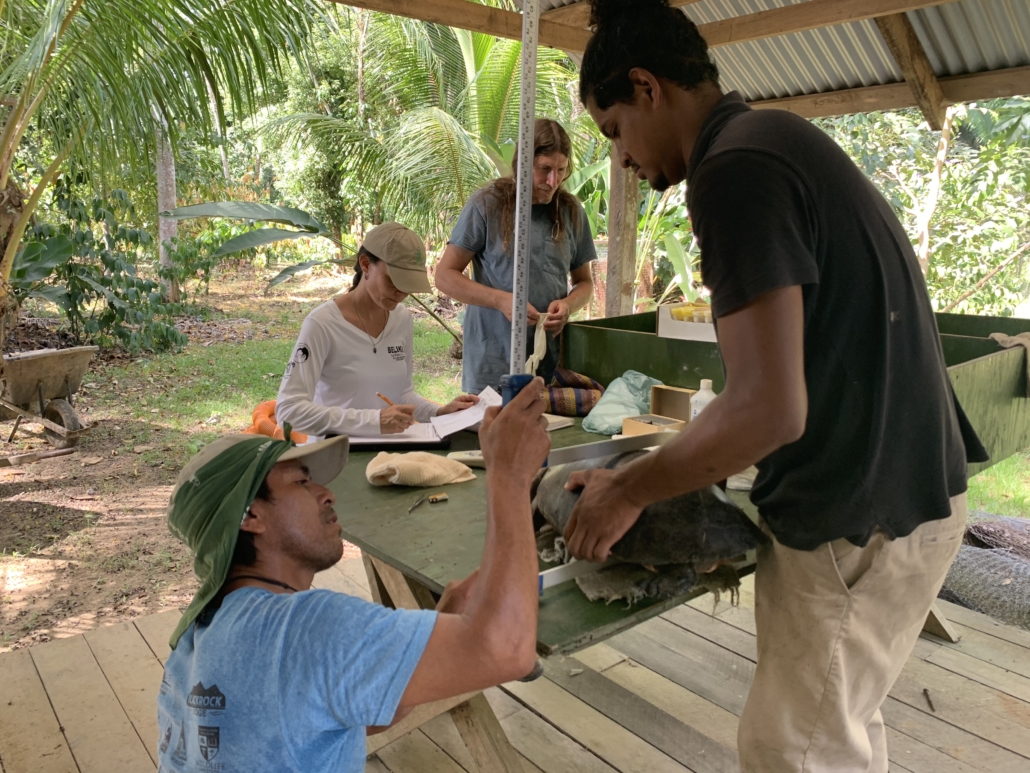
Over the last six years, the Hicatee Conservation and Research Center (HCRC) population of critically endangered Central American River Turtles, Dermatemys mawii, has grown from the 22 founding adults and subadults to 45 breeding adults. Sixty-four clutches of eggs have been deposited from 23 reproductive females resulting in 693 eggs, and over 650 hatchlings. The total current captive population at the HCRC is 345 individuals. Of them, 282 turtles representing 4 cohorts (2017, 2018, 2019, 2020) have been identified for release.
The 2020/2021 egg laying season is almost complete, and in addition to the numbers mentioned above, we have added 15 clutches totaling almost 150 eggs so far. Our success in breeding and hatching large numbers of D. mawii has provided extensive morphometric data on hatchlings, determined best practices for reliably reproducing the species in captivity, and pushed us towards advancing the next phase of the project which is reintroduction of head-started animals back to their historic range. As part of that initiative, surveys of various rivers were initiated in 2019, and continued in 2020, to help identify potential release sites. In preparation for releases, disease testing of animals raised in captivity is a priority to ensure that they do not pose a health risk to existing wild D. mawii populations.
The Value of Health Assessments
Both individual and population level health screening are important considerations for these programs to ensure that the individuals selected for release are healthy and fit to increase their likelihood of survival post-release, as well as do not pose a health risk to remnant wild populations. Health assessment and pathogen screening also provide baseline data and a reference point for understanding disease ecology in captive and free-ranging animal populations.
With all this in mind, our spring 2021 Hicatee Health Assessment was geared toward sampling a subset of captive turtles in different age classes to collect samples for later diagnosis specifically looking for pathogens. The HCRC Manager, Thomas Pop, along with HCRC Assistant and Wildlife Fellow, Jonathan Dubon, implemented the health assessment with the support of Jacob Marlin and Heather Barrett.
Prior to our Health Assessment at the HCRC, the team joined up with Day Ligon and Denise Thompson in Central Belize to collect samples from a group of wild individuals to provide a reference and for comparison. All samples were collected under a permit provided by the Belize Fisheries department. Samples will be exported from Belize to the USA, and will be analyzed in a lab in the Wildlife Conservation Society Molecular Laboratory at the Bronx Zoo in New York.
Acknowledgements
Thanks to our project partners who made these important events possible.
- Turtle Survival Alliance
- Turtle Conservation Fund
- Global Wildlife Conservation
- Wildlife Conservation Society
- Jacksonville Zoo
- Day Ligon and Denise Thompson
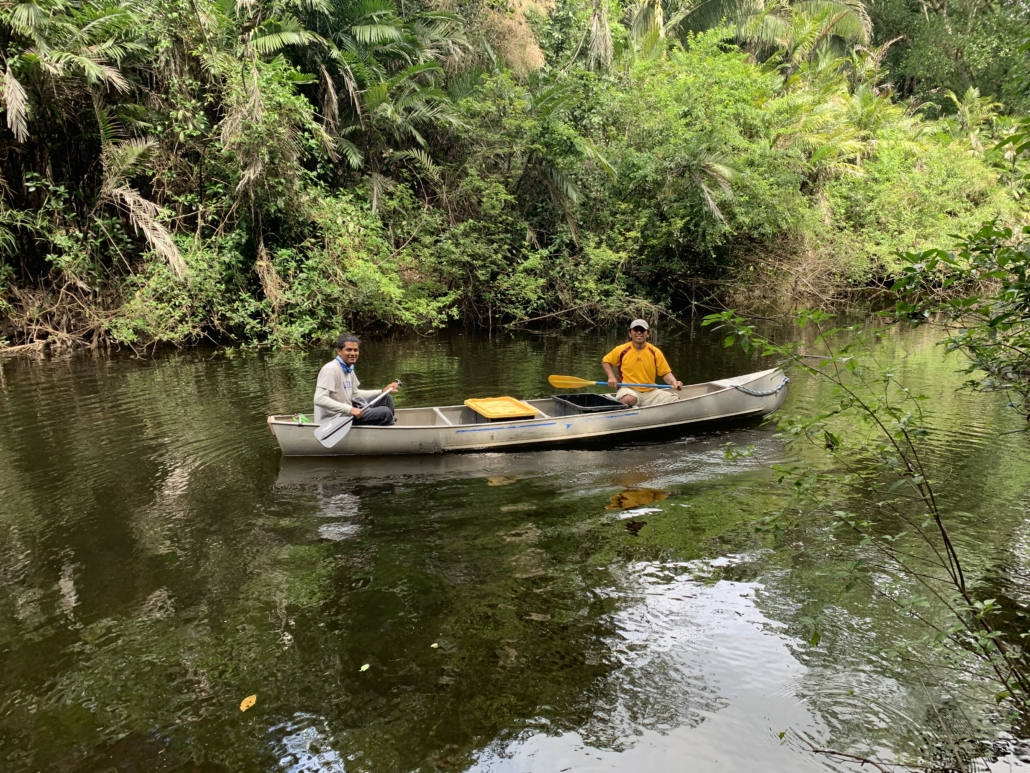
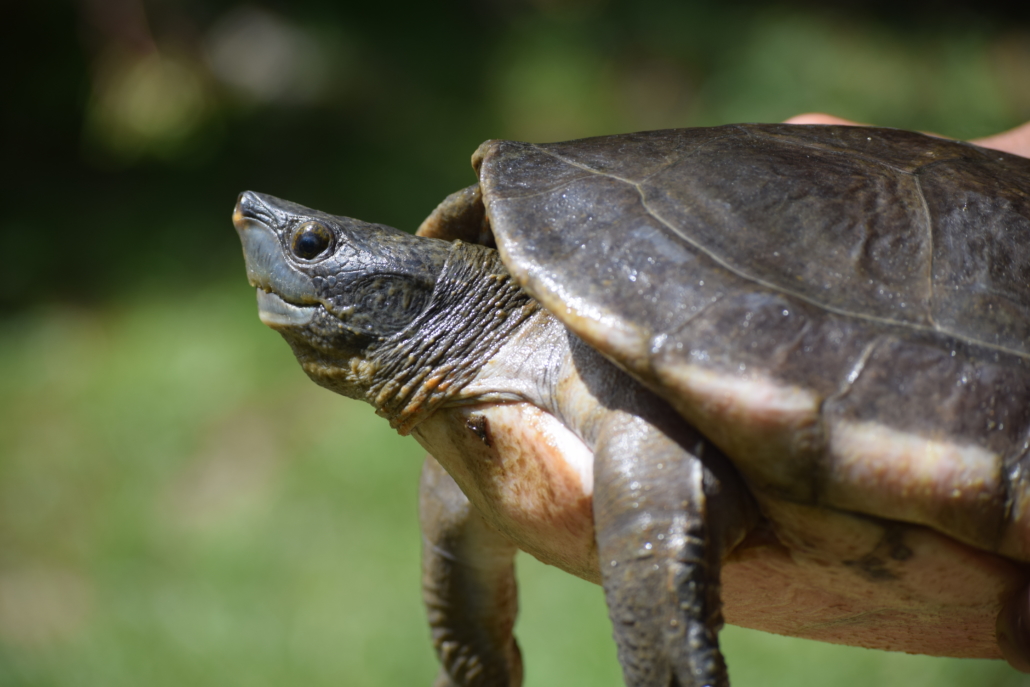

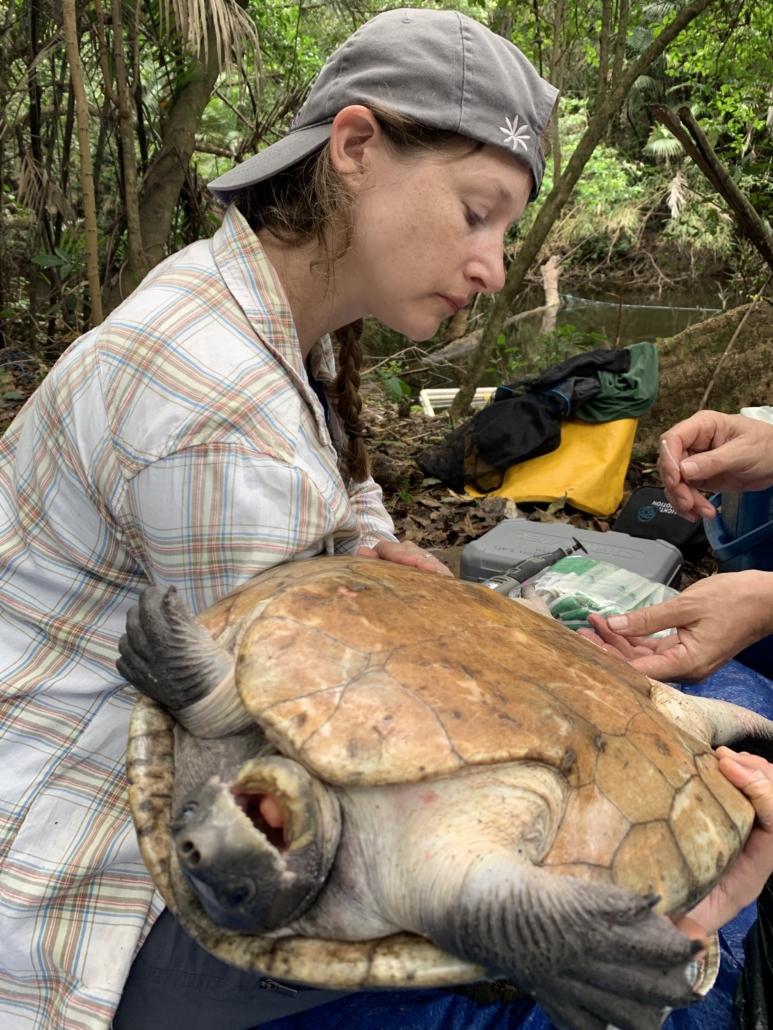
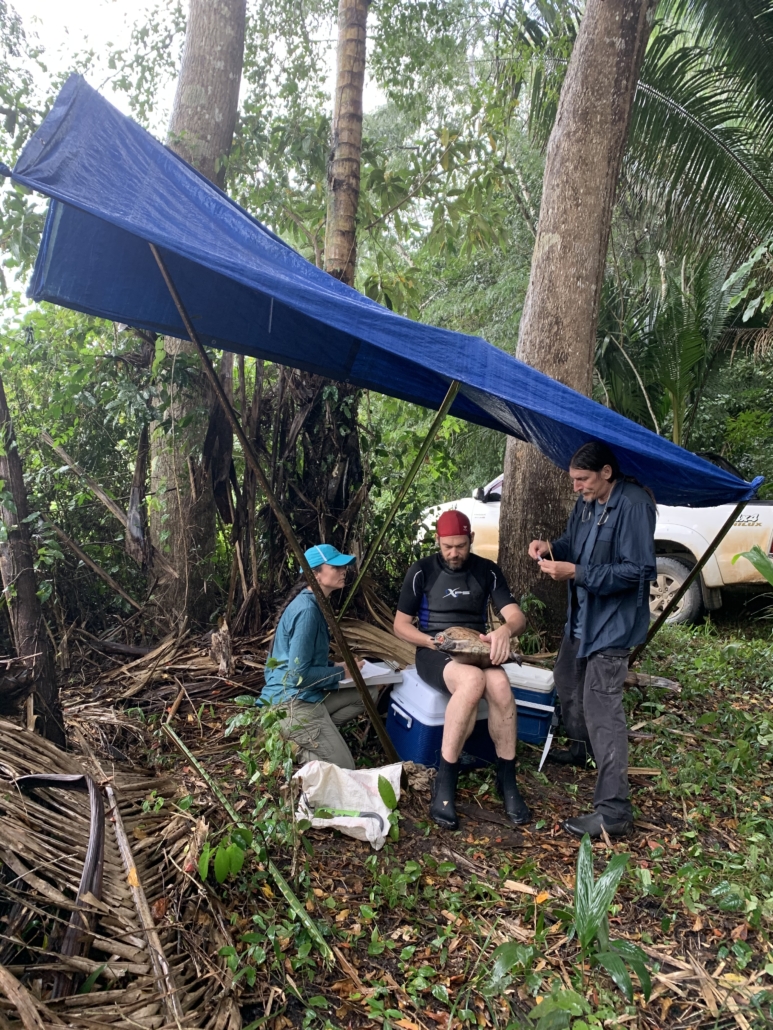
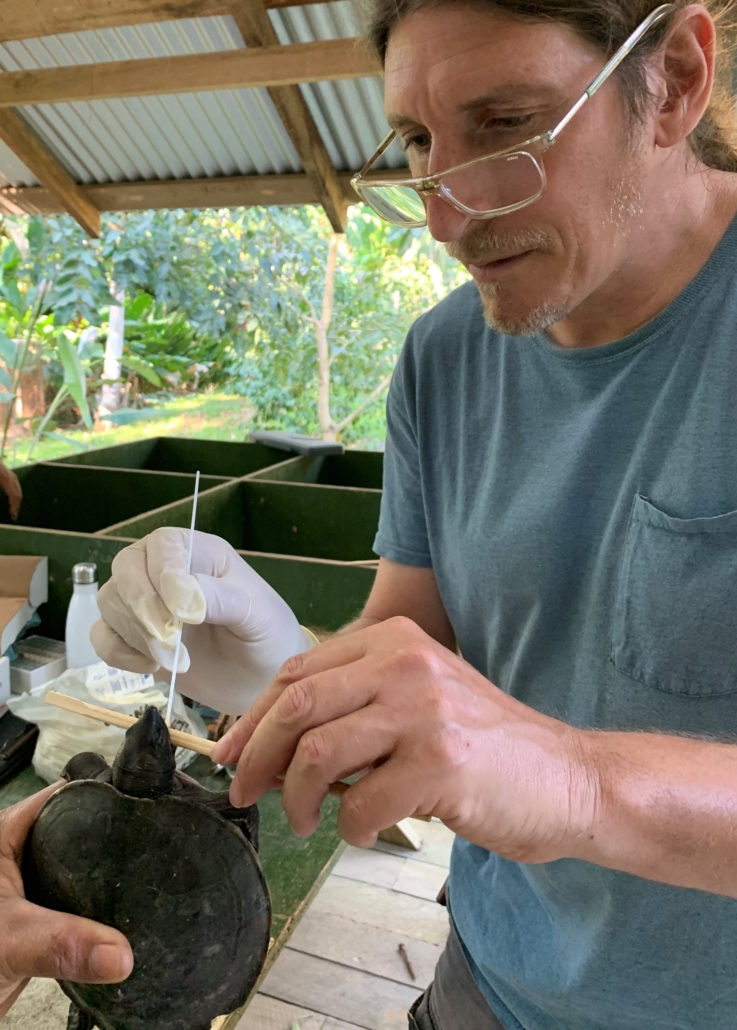
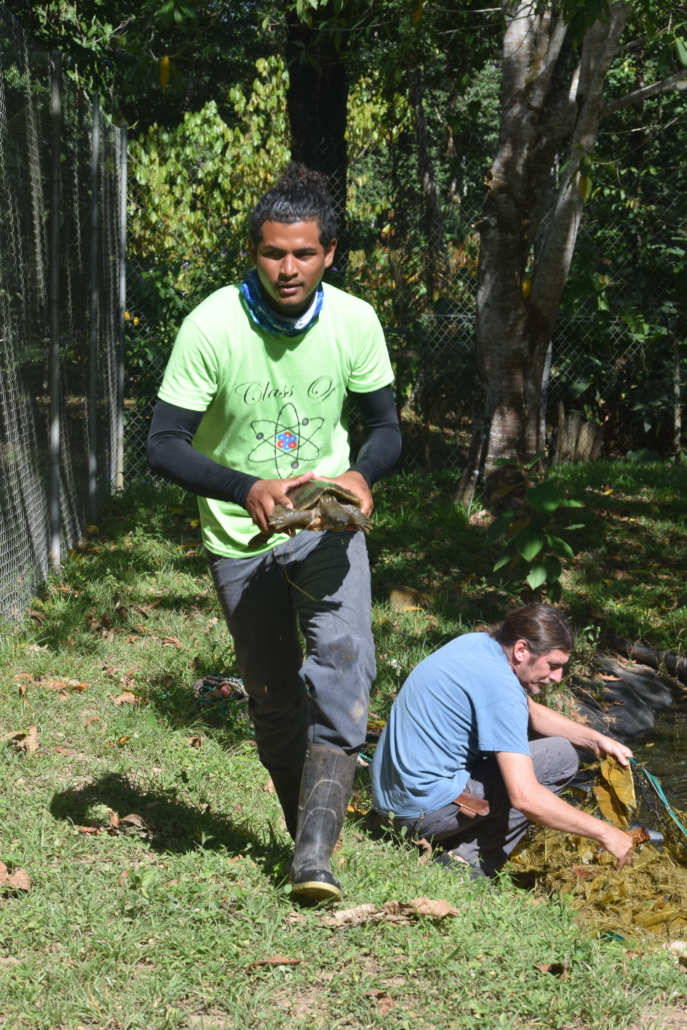


Leave a Reply
Want to join the discussion?Feel free to contribute!